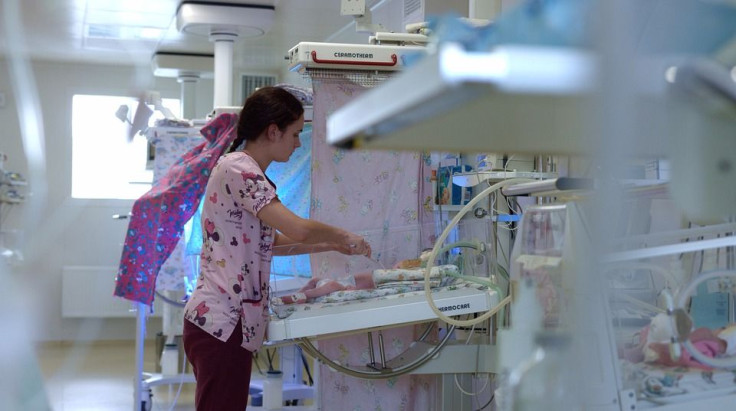
Jennifferre Mancillas was working as a bedside nurse in 2021, when she was invited to a hackathon as part of Johnson and Johnson's Nurse Innovation Fellowship. There, she found inspiration to launch a tech startup that would tend to her sector.
"That's when the entrepreneurial portion of my journey began and I met my co-founder (Anthony Scarpone-Lambert), who has a nursing background also," said Mancillas, co-founder and COO of Adni, a nursing marketplace and recruiting platform.
Mancillas and Scarpone-Lambert partook in the prestigious Y Combinator accelerator program in the summer of 2021 and later that year they launched uNight Light, a wearable light meant to help healthcare workers illuminate their workspace without disturbing patients.
Mancillas said that the product was a catalyst to start the marketplace. Since then, Adni has grown into an AI-powered platform that helps healthcare organizations recruit workers and improve retention rates by rewarding them with items from their marketplace.
The platform helps alleviate some of the expenses nurses often absorb in their profession. Nurses can be expected to buy their scrubs, shoes, stethoscopes and compression socks, according to Mancillas. With Adni, healthcare workers can offset those expenses by earning points and discounts as rewards from employers.

"Out of our lived experiences working as nurses, especially during COVID, we realized that our profession was very siloed and disjointed," said Mancillas.
By using Adni's rewards and recruiting capabilities, Mancillas hopes that employers can recruit more Latino nurses, as only 5.4 percent of all registered nurses identify as Latino.
Mancillas grew up in the California Central Valley, a region with a large Latino population but with limited access to healthcare. According to a report from California State University, Fresno Latinos in the Central Valley lacked health insurance and rarely went in for health checks; the report also found that there was a lack of healthcare workers in the area and recommended instituting a Promotora program.
Promotora programs work by providing culturally appropriate services to underserved populations. These groups provide services such as health education, translation services and patient advocacy services. Research has suggested that providing culturally competent care, such as Promotora programs, results in better patient outcomes.
"Healthcare in general would benefit so greatly if there was better competency of care and we had more Latino nurses caring for patients in populations where the demographic is mostly Hispanic," Mancillas told the Latin Times.
Going forward, Mancillas and Scarpone-Lambert are looking to continue growing the platform by onboarding more employers and users.
"The big vision is to be able to disrupt the way that healthcare systems look at healthcare workers, and make it easier for healthcare workers to feel valued within their organization," said Mancillas.
© 2025 Latin Times. All rights reserved. Do not reproduce without permission.





